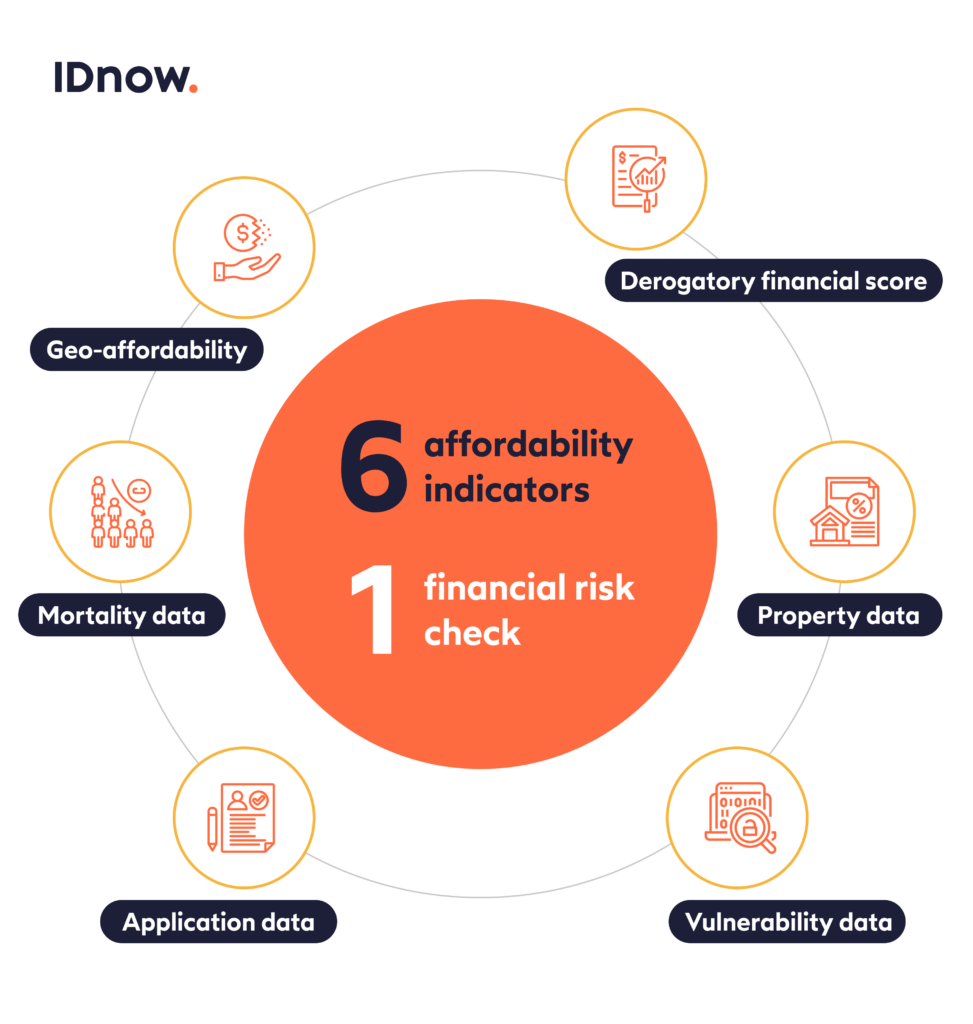In 2022, the revenue generated from UK’s gambling industry reached an eye-watering £14.7 billion; an 18.1% increase on 2021. But what was the real cost? We explore how financial risk checks can help protect players, and prevent problem gambling.
Almost half (44%) of UK adults have gambled at least once this year, and there are approximately 14 million active players gambling online. This is a 78.4% increase on the number of active online gamblers (10 million) in April 2020.
While the vast majority of those who gamble do so recreationally, spending an average of just £2.70 per week, there are 300,000 people estimated to be engaged in problem gambling. In the recent UK gambling white paper, the UK government defined ‘problem gambling’ as “gambling to a degree which compromises, disrupts, or damages family, personal or recreational pursuits.” A further 1.8 million were considered gamblers at “elevated levels of risk.”
What is problem gambling?
When does gambling become a problem? What may be too much for one person may not be for the other. In this sense, isn’t problem gambling subjective?
According to the UKGC, here are some examples of “clearly unaffordable gambling” from 2020.
“A customer lost £54,000 within a month of signup despite the operator not having established affordability for the customer. Shortly after joining, the customer’s account was suspended due to Safer Gambling concerns. When a successful call was made, the customer said they had “had a shocker over the weekend’ but were happy to lose £20K a month. The customer said they would be happy for the operator to set a deposit limit for them, but this was not done.”
UKGC case study.
“A customer lost £24,800 within three days. The operator had not carried out any affordability assessment for the customer.”
UKGC case study.
New approach to a growing problem.
Considering the dramatic increase in active online gamblers, and the startling numbers of problem gamblers, the UK government will, for the first time, mandate operators to conduct financial risk checks (formerly known as affordability checks) on customers.
As such, operators who fail to protect their customers run the risk of not only being complicit in the devastation to customers’ lives, but also liable to fines and irreparable brand damage. In fact, there was a total of £44.6 million of fines issued by the UKGC in 2022, which was a 76% rise from 2021. For example, in March 2022, online operator 888 was fined £9.4 million following social responsibility (also known as responsible gambling) and money laundering failings.
Failings included:
- Not effectively identifying players at risk of harm because their policies determined financial checks should only be carried out after a customer had deposited £40,000.
- Not carrying out a customer interaction with a customer who had lost £37,000 in a six-week period during the pandemic.
- Giving an NHS worker earning £1,400 a month a monthly deposit cap of £1,300.
- And much more…
Responsibility vs risk. Is it worth it?
The UK Gambling Commission (UKGC), which is largely responsible for organizing consultations and then implementing regulatory changes in the UK’s gambling market, is currently investigating four areas:
- Remote game design;
- Strengthening age verification;
- Improving customer control over advertising;
- Financial risk and financial vulnerability.
For more information on the UKGC’s plans, read ‘From policy to paper: What’s next for the UK’s gambling sector.’
What is an affordability check in gambling?
With the UKGC’s proposed changes, operators are now required to conduct financial risk checks (formerly known as affordability checks) to assess whether a customer’s gambling activity may be harmful to their financial circumstances.
While the benefit of mandating financial risk checks is certainly plain to see, what constitutes risk; what the check involves; and who would be subjected to checks was not immediately clear from the UK government’s early materials and messaging. Similar criticisms of lack of clarity were levelled against its stats on problem gambling, which resulted in many media think pieces and articles with somewhat colourful interpretations of numbers.
In August 2023, the UKGC condemned what it saw as the misuse of statistics to push agendas and further arguments. Just one month later, in September 2023, Andrew Rhodes, Chief Executive of the UKGC felt compelled to release a video and in-depth blog to clear up confusion and provide further clarity on the topic of financial risk checks.
Gambling regulations 101: EU and the UK.

What is a financial risk check?
The UKGC’s consultation is seeking feedback on two proposed forms of financial risk checks. The first is described as “light touch financial vulnerability checks using publicly available data.” The UKGC considers these unintrusive checks. The government and UKGC are proposing these checks be conducted at £125 net loss within a 30-day period, or £500 within a rolling-year period.
It’s worth mentioning that some larger gambling operators already perform this check, either at onboarding or during the customer journey.
The second financial risk check is referred to as a financial risk assessment, which is considered a more detailed financial risk check. According to the aforementioned blog, these will be trigged “at unusually high loss levels where it seems proportionate to understand more about the potential risk of harm.”
These assessments will be from credit reference agency data and will kick in at losses of more than £1,000 within 24 hours, or £2,000 within 90 days. The consultation is also gathering feedback on the potential for lower triggers for those aged 18-24.
How will financial risk checks impact the player experience?
One of the major concerns for operators and players alike was how these checks would impact upon the player experience, and who exactly would be subjected to checks.
As clarified above, the checks would be proportionate and therefore only the high spending [and losing] customers would ever be impacted. According to the UK government and UKGC:
- Light touch financial vulnerability checks to be carried out on 20% of accounts.
- Only 3% of accounts would undergo the more in-depth financial risk assessments.
- Just a tenth of that 3% (0.3% of account holders) would ever be asked to provide additional financial information.
- The rest (99.7%) would therefore be frictionless data checks.
Well, that clears that up, doesn’t it…
In the blog, the UKGC reassured operators that they would not mandate operators to implement checks at the above levels until they could be sure that they were being delivered frictionlessly. What constitutes an acceptable level of friction will, I imagine, be a topic for consultation…
The UKGC is proposing that a customer be subjected to a financial vulnerability check every 12 months. For the more in-depth financial risk assessment, it is proposing a period of every 6 months.
Why must gambling operators conduct a financial risk check?
Arguments against mandatory financial risk checks include the fact that customers aren’t subjected to similar checks when buying cars or clothes, so why should there be one for gambling. Addressing these comments, Andrew said:
While most people enjoy gambling and don’t experience harm, the Government has determined that gambling should be a regulated industry partly because of the harm that gambling products can cause.
Andrew Rhodes, Chief Executive at the UKGC.
Will financial risk checks force players to black market gambling platforms?
As mentioned by our Roger Redfearn-Tyrzrk, our Director of Global Gambling and Sales at IDnow in a recent interview, the dangers of using an unregulated, black-market platform far outweigh the positives.
If you’re using a black-market operator, your winnings are totally in their hands. For example, if you hit a jackpot of €1 million, they don’t have to pay you out, because there is no consumer protection.
Roger Redfearn-Tyrzrk, Director of Global Gambling and Sales at IDnow
Other concerns regarding black-market gambling platforms revolve around a higher propensity for fraud and other illegal activity. In addressing concerns that customers would simply just gamble elsewhere, thereby circumnavigating any checks or regulation, the UKGC said: “We will never accept the argument that because an illegal online option exists, this should mean that the regulated gambling sector should have lower, less fair or less safe standards. Britain is, and must continue to be, a world leader in providing consumers with a fair and safe gambling market.”
Check out our blog on the arguments against financial risk checks.

Why 6 financial risk check indicators are better than 2.
IDnow offers the most comprehensive financial risk check in the industry. Historically, identity verification providers have relied on just two indicators for affordability checks: geo-affordability and postcode data, but we utilize six distinct data checks to offer the most accurate and holistic assessment of a player’s affordability.
Here’s how IDnow’s financial risk check solution works:
1. Geo-affordability.
The most commonly-used data set to conduct affordability checks, geo-affordability data enables you to understand regional spending patterns and potential financial risks associated with specific areas and players.
2. Application data.
According to the Financial Conduct Authority’s (FCA) Financial Lives 2022 Survey, 24% of UK adults have low ‘financial resilience,’ potentially making them unable to absorb financial shocks, such as losing their main source of household income for a week.
Application data aggregates information from 2.5 million of the most financially vulnerable consumers in the UK, approximately 750,000 financially stressed individuals reapplying for short-term high-cost loans every month, and 90,000 new loan enquires made each month. This data will help you identify financially stressed individuals by, for example, leveraging data from high-cost, short-term loan enquiries (payday loans).
3. Vulnerability data.
The FCA’s survey also found that 47% of adults display one or more characteristics of vulnerability. These data checks allow you to protect your players and understand their ability to gamble responsibly by leveraging the Vulnerability Registration Service.
4. Mortality data.
In modern-day parlance, ‘ghosting’ refers to the disappearance of a suitor, who may not return texts, phone calls, or dating app messages. Rather less known is the ghosting that refers to stealing a person’s identity after they have passed away, and then using the data for financial gain, or, for example, signing up for a gambling platform. By plugging into mortality data, you can leverage data from 12 million deceased individuals (85% of all UK deaths), with 40,000 new records added each month to ensure your players are not using details from a deceased person. Discover all about the darkest form of identity theft, ghosting fraud, in our blog ‘Ghosting fraud: Are you doing business with the dead?’.
5. Property data.
Although property data tends to be used predominantly by real estate agencies and real estate investors to predict trends, and monitor the market, it can also be used to gain insights into a player’s residential circumstances, from council tax band and housing type to property values, to better assess the affordability risk associated with a player.
6. Derogatory financial score.
With access to the derogatory financial score data, you can identify which players are likely to enter arrears and default credit agreements with a dynamic score that assesses the financial quality of a player.
Reduce risk. Prevent problem gambling. Play on.
Reduce friction and strengthen customer relationships by offering a fully automated financial risk check that promptly demonstrates concern and offers help to potentially vulnerable players – increasing customer satisfaction and customer loyalty.
IDnow combines a powerful, holistic affordability check with multi-dimensional identity verification and fraud prevention, enabling seamless gambling experiences anytime, anywhere. All from one platform, all in real time.
For more information, visit: https://www.idnow.io/gaming/
By

Jody Houton
Content Manager at IDnow
Connect with Jody on LinkedIn



